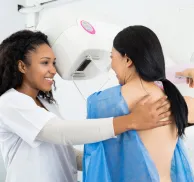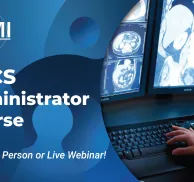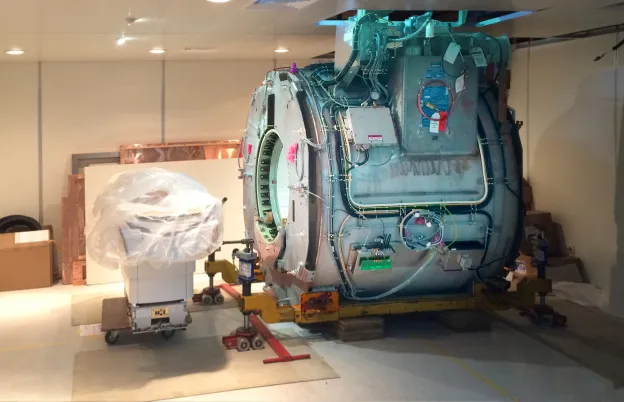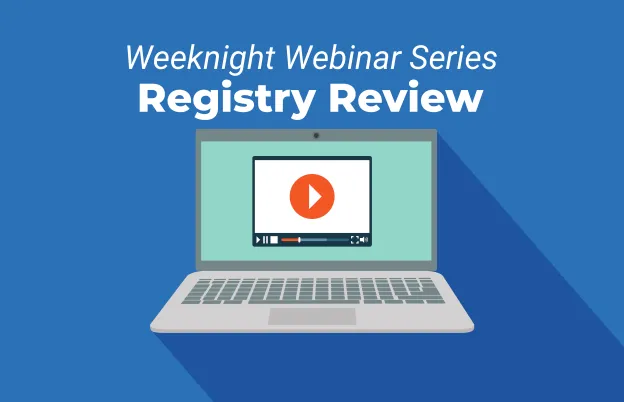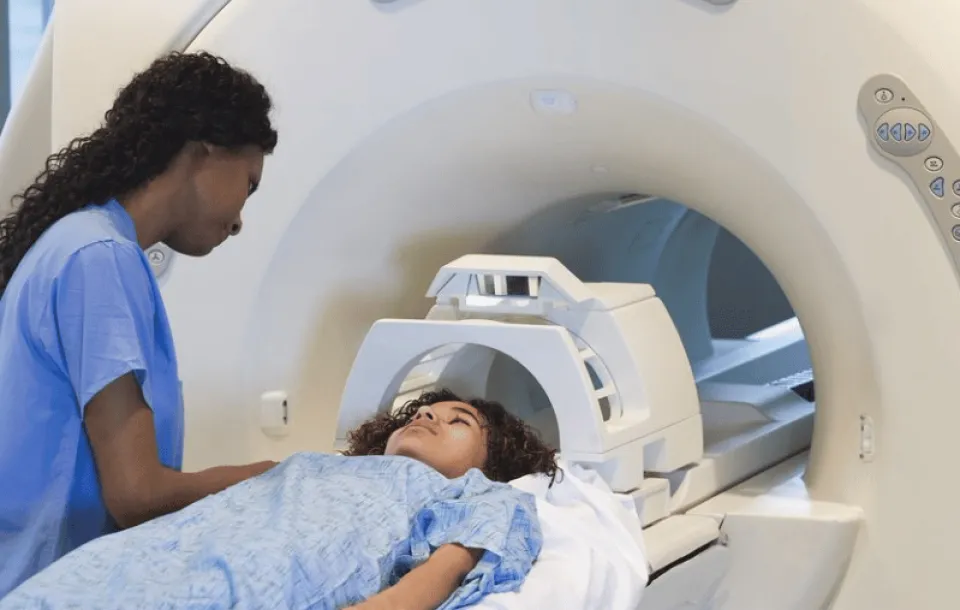
- Document2026 MRI Training Course Flyer (406.26 KB)
MRI Training Course for Technologists
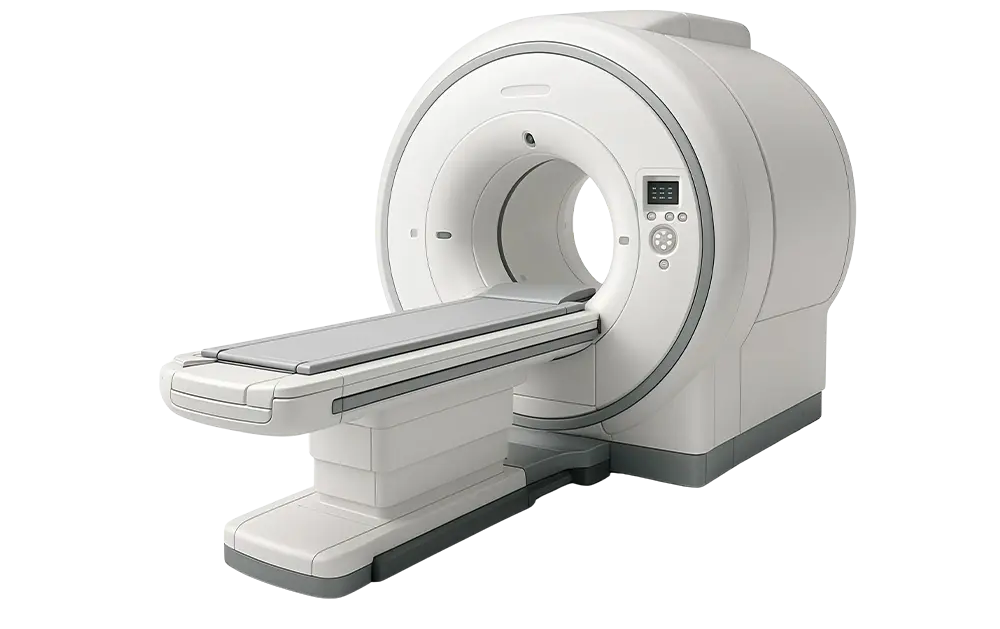
Earn MRI Certification & Move Your Career Forward
94% of MTMI students pass the ARRT® MRI board exam!
Our MRI Training Program will provide you with comprehensive education that meets ARRT® structured education requirements and prepares you to sit for the MRI Registry Exam. This 5-day course, available in person, live webinar, or online self-paced, covers essential MRI concepts, safety, protocols, anatomy, and more.
Combined with ScanLabMRI™ simulation, it’s the ultimate cross-training experience for technologists ready to expand their skills and job opportunities.
To learn more about MRI certification, download the ARRT® MRI Certification Handbook.
Your Path to MRI ARRT® Exam Success Starts Here
MTMI is with you every step of the way with quality MRI education & CE credits.
- Digital MRI Course Book – Included at no extra charge, this comprehensive resource is a perfect supplement to your training
- Access ScanLabMRI™ virtual scanning software – Labs that replicate clinical scans, creating real-world hands-on training without the risk to patients and accelerated skill building, critical thinking and retention for MRI certification exam success
- ASRT-Approved MRI Credits – Earn 40 hours of Category A credit & 16 hours of structured education required for certification/registration
- Build a Strong Foundation for a Rewarding MRI Career – Gain the skills and knowledge needed to thrive in one of the most in-demand imaging modalities, opening the door to more opportunities and a meaningful impact on patient care
3 Formats: In-Person, Live Webinar & Online MRI Training
MTMI offers 3 different learning formats to complete your MRI Training: In-Person, Live Webinar, or Online Self-Paced. You can choose the one that works best for your learning style and schedule.
Plus, all formats cover the essential MRI concepts, certification exam preparation, and techniques required for ARRT® MRI certification.
Great for learners who thrive in a structured learning environment with interaction and enjoy a faster pace of learning
- Interact with the expert MRI educators and peers
- Take advantage of real-time Q&A
- Get training done in just 5 days
- Access to ScanLabMRI for 3 months
All of the wonderful benefits of in-person learning, but from the comfort of your home.
- No out-of-pocket flight or hotel costs
- Attend from any location
- Take advantage of real-time Q&A
- Access to ScanLabMRI for 3 months
Great for self-motivated learners who are good at managing their schedules and can’t devote dedicated time to live instruction.
- Start MRI training immediately
- Complete the MRI course on your own schedule
- You have up to six months to complete the program
- 320+ registry-style post-test questions built into the course
- Access to ScanLabMRI for 3 months
Gain Confidence with ScanLabMRI Virtual MRI Simulations
Practice MRI Scanning in a Realistic, Risk-Free Virtual Environment
Get hands-on experience with ScanLabMRI™, an innovative simulation tool built into our MRI Training Course. Designed to replicate real clinical scanning, ScanLabMRI lets you practice and apply essential MRI skills in a safe, interactive environment.
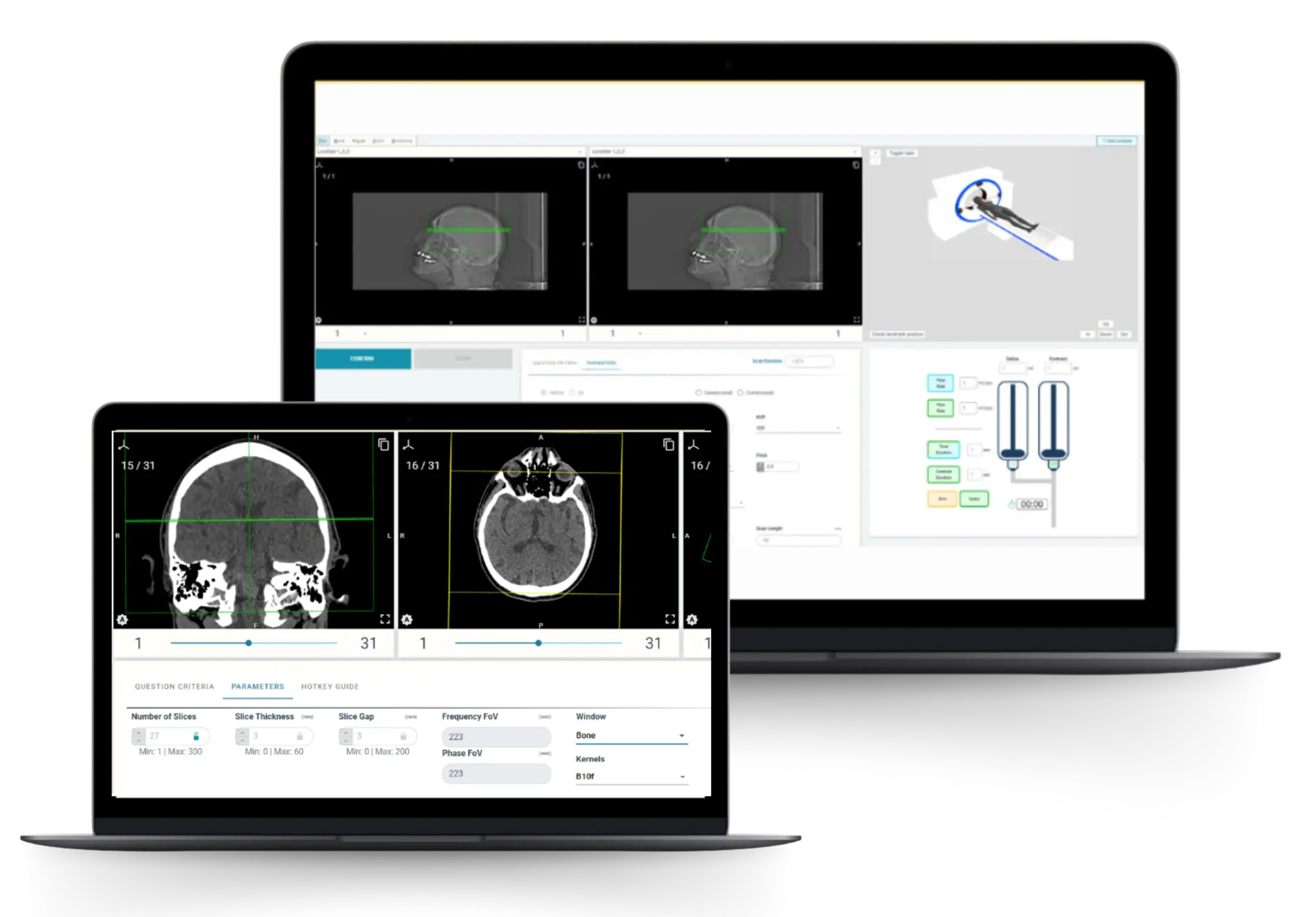
Explore three key areas of MRI proficiency:
- SliceQuant™ – Test slice prescription
- ContrastLab™ – Evaluate knowledge of the parameters that affect MRI image contrast
- ResolutionLab™ – Assess spatial resolution understanding
Benefits of ScanLabMRI:
- Build confidence before clinicals
- Apply skills in real-world simulations
- Master image reconstruction & troubleshooting
- Reinforce knowledge with critical thinking exercises
- Continue practicing for 3 months post-course
- Included with all learning formats
Do You Need to Meet ALL of the ARRT® Clinical Requirements?
MTMI has established a 12-week program where you can obtain all ARRT® clinical experience requirements needed to sit for the ARRT® MRI board registry certification exam. In order to be eligible, attendees must complete MTMI's MRI course. This is required by our partnering facilities.
Students are responsible for their own housing, travel, and food. Additionally, students are responsible for covering the costs of prerequisites, including immunizations, background checks, drug tests, licensure, and other required documentation.
Full payment for the 12-week program is due in advance before the clinical rotation begins. A $200 non-refundable deposit is required to secure your spot. If you cancel before your clinical rotation begins, you’ll receive a full refund minus the $200 deposit. Cancellations within the first 2 weeks of the rotation will be refunded at 40% and no refunds will be issued after 2 weeks.
Please contact MTMI for more details at mtmieducation@mtmi.net or call 800-765-6864.
MRI Training Course for Technologists Educational Objectives
At the completion of this accredited MRI program, participants will be able to:
- Explain and review the basic principles of magnetic resonance imaging
- Utilize appropriate MR pulse sequences in clinical imaging
- Recognize and minimize MRI artifacts
- Incorporate current knowledge of biological effects and safety considerations when working in the MR environment
- Describe techniques in manipulating MR parameters to optimize image production quality
- Explain proper selection and usage of MR coils to optimize image quality
- Discuss advanced imaging procedures of neuroimaging including cranial nerves and brain perfusion protocols and techniques
- Understand proper screening for patients and personnel when working in an MRI environment
- Demonstrate proper screening for patients and personnel when working in an MRI environment
- Understand patient care and communication needs for sedation, contrast media, and infection control
- Discuss policies and procedures and legal liabilities in MR
- Understand implant cards and off-label scanning
- Understand protocols and procedures for special body imaging, including enterography, urography, and rectal imaging
- Explain the basic functions of ScanLabMR software in order to perform simulated MR scans
Educational Resources/FAQ
MRI technologists should be certified to perform MRI scans. To obtain MRI certification, you must complete a radiologic technologist program or an MRI technologist program at an accredited institution (most MRI schools require an associate degree). After completing your education, you’ll need to pass a certification board exam—typically through the American Registry of Radiologic Technologists (ARRT®).
An ARRT® Registered Technologist may take the ARRT® MRI exam after completing a continuing education course like this one with at least 16 hours of structured education, plus performing clinical examinations on real patients as part of the application for the exam. Learn more about becoming an MRI technologist!
It’s important to understand the difference between attending an MRI course or training program and acquiring your MRI Certification through a credentialing organization like the ARRT®.
By completing a course or training program, you may receive a certificate of completion that verifies you’ve met the didactic educational requirements necessary to sit for the ARRT® MRI Registry Exam. However, completing a course alone does not fulfill the clinical experience requirements required for certification and registration.
Earning a certificate from an MRI technologist course is a vital first step, providing the structured education required by the ARRT® and helping you build the knowledge and skills needed to pass the certification exam and become a certified MRI technologist. Clinical experience must be completed separately before applying for certification.
Schedule
What this course will cover
Prior to Arriving
- Approximately 3 weeks before the course begins, you will receive access to a ScanLabMR instruction module to familiarize yourself with the software. This introductory module takes less than an hour and needs to be completed FIRST.
- After completing the introductory module, you will receive access to the ScanLabMR online scanning simulation software. This is to be accessed AFTER the ScanLabMR introductory module.
- You will be given step-by-step instructions to complete simple scanning lab activities to familiarize yourself with the buttons.
- We highly encourage ALL students to complete the pre-course work. Your participation in ScanLabMR PRIOR to your arrival will enhance your 5-day training course, which has a 94% pass rate when taking the board exam!
- Please bring your laptop to the in-person course.
MRI Training Course for Technologists
Times listed are in Central Time
Day 1 | |
| 7:30 am | Introduction Check-in & Registration / Log in for Webinar Attendees |
| 8:00 am |
|
| 10:10 am | Break and Informal Discussion |
| 10:20 am |
|
| 12:00 pm | Lunch (provided for in-person attendees) |
| 12:45 pm |
|
| 2:45 pm | Break and Informal Discussion |
| 3:00 pm |
|
| 4:00 pm | Adjourn for the Day |
Day 2 | |
| 8:00 am |
|
| 10:10 am | Break and Informal Discussion |
| 10:20 am |
|
| 12:00 pm | Lunch (provided for in-person attendees) |
| 12:45 pm |
|
| 2:45 pm | Break and Informal Discussion |
| 3:00 pm |
|
| 4:00 pm | Adjourn for the Day |
Day 3 | |
| 8:00 am |
|
| 10:10 am | Break and Informal Discussion |
| 10:20 am |
|
| 12:00 pm | Lunch (provided for in-person attendees) |
| 12:45 pm |
|
| 2:45 pm | Break and Informal Discussion |
| 3:00 pm |
|
| 4:30 pm | Adjourn for the Day |
Day 4 | |
| 8:00 am |
|
| 10:10 am | Break and Informal Discussion |
| 10:20 am |
|
| 12:00 pm | Lunch (provided for in-person attendees) |
| 12:45 pm |
|
| 2:45 pm | Break and Informal Discussion |
| 3:00 pm |
|
| 4:00 pm | Adjourn for the Day |
Day 5 | |
| 8:00 am |
|
| 10:10 am | Break and Informal Discussion |
| 10:20 am |
|
| 12:00 pm | Lunch (provided for in-person attendees) |
| 12:45 pm |
|
| 2:45 pm | Break and Informal Discussion |
| 3:00 pm |
|
| 4:00 pm | Adjourn for the Day |
*ScanLabMR™ is an MRI simulator that incorporates virtual reality with an interactive platform and image acquisition, replicating clinical exams. ScanLabMR also includes image reconstruction. *Schedule subject to change | |
ScanLab
What to expect from Scanlab simulations:
(Please bring your laptop to the in-person course)
Approximately 3 weeks before the MRI course begins, you will receive access to a ScanLabMR instruction module to familiarize yourself with the software. This introductory module takes less than an hour and needs to be completed FIRST.
After completing the introductory module, you will receive access to the ScanLabMR online scanning simulation software. This is to be accessed AFTER the ScanLabMR introductory module.
With this MRI technologist course, you will be given step-by-step instructions to complete simple scanning lab activities to familiarize yourself with the buttons.
We highly encourage ALL students to complete the pre-course work. Your participation in ScanLabMR PRIOR to your arrival will enhance your 5-day training course, which has a 94% pass rate when taking the board exam!
How ScanlabMR works:
ScanLabMR incorporates virtual reality with interactive patient and image acquisition to replicate the complex clinical aspects of day-to-day healthcare practice. The software also includes image reconstruction examinations and critical thinking questions to reinforce comprehension and retention.
The instructors include MR virtual scanning demonstrations throughout the magnetic resonance imaging training program to provide a practical understanding of their lectures. You can continue practicing on the MRI simulation software for three months after the course.
ScanLabMR examines 3 key MRI knowledge and skill areas: SliceQuantTM to test slice prescription, ContrastLabTM to evaluate knowledge of the parameters that affect MRI image contrast, and ResolutionLabTM to assess spatial resolution understanding
Audience
Who should attend?
You should attend this course if you are a radiologic technologist with basic or no previous MR experience and are interested in learning the principles necessary to operate an MR scanner.
Are you interested in becoming a MRI technologist? Read our full blog to answer any initial questions you may have!
Program Faculty
Meet your presenter(s)

Paul Worthington
BS, RT(R)(MR)
Paul (Valparaiso, IN) is an MR Advanced Clinical Specialist with Philips Healthcare. As an MR professional since 1987, Paul has extensive MR knowledge working in university hospital, mobile and private practice settings. He has held several roles ranging from staff technologist, clinical applications specialist, and manager. His knowledge in MR and understanding multi-vendor capabilities make him a strong educator on this topic. Paul has been lecturing on the clinical and practical applications of MR since 2003.

Yu Liu
PhD
Dr. Liu has been with the Medical College of Wisconsin since 2015. He is an Associate Professor of Radiology and Chief in the Medical Physics Division of Imaging Services. He earned his Master of Science in Biomedical Engineering from Duke University, Durham, NC, 1991 and a Doctor of Philosophy in Biomedical Engineering from Duke in 1993.

Ryan Draeger
BSRT (R)(CT)(MR) ARRT MRSO (MRSC) MRSE (MRSC)
Ryan Draeger is a Clinical Application Specialist at Canon Medical Systems USA. He has worked extensively in MRI and MRI education, specializing as an MRI Safety Officer and MRI Safety Expert through the American Board of Magnetic Resonance Safety. Ryan has spent a good deal of his career on protocol optimization for scanning difficult implants in MRI was well as educating others on how to do the same.
Credits
Accredited training programs
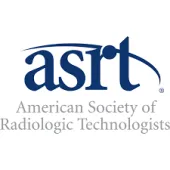
ASRT Category A
This program provides 40 hour(s) of Category A continuing education credit for radiologic technologists approved by ASRT and recognized by the ARRT® and various licensure states. Category A credit is also recognized for CE credit in Canada. You must attend the entire program to receive your certificate of completion.
This 40 credit activity provides the 16 hours of structured education related to the content specifications outlined by the ARRT®, required for certification and registration.Location
Course location and hotels
| Milwaukee, WI- May 04-08, 2026 | |
Course Location MTMI International Headquarters | Accommodations: SpringHill Suites Milwaukee West Reservations click here Hotel Amenities: Airport Transportation: Springhill Suites does not provide airport |
| Milwaukee, WI- September 28-October 02, 2026 | |
Course Location MTMI International Headquarters | Accommodations: SpringHill Suites Milwaukee West Reservations click here Hotel Amenities: Airport Transportation: Springhill Suites does not provide airport |
Tuition

| Audience | Price | Early Price | Member Price | Member Early Price |
|---|---|---|---|---|
| MRI Training Course for Technologists | $2,365.00 | $2,265.00 | $2,340.00 | $2,240.00 |
| Online Self-Paced MRI Training Course | $2,365.00 | $2,340.00 |
Early Pricing Guidelines
To qualify for Early registration rates, you must register at least 21 days before the program date.
